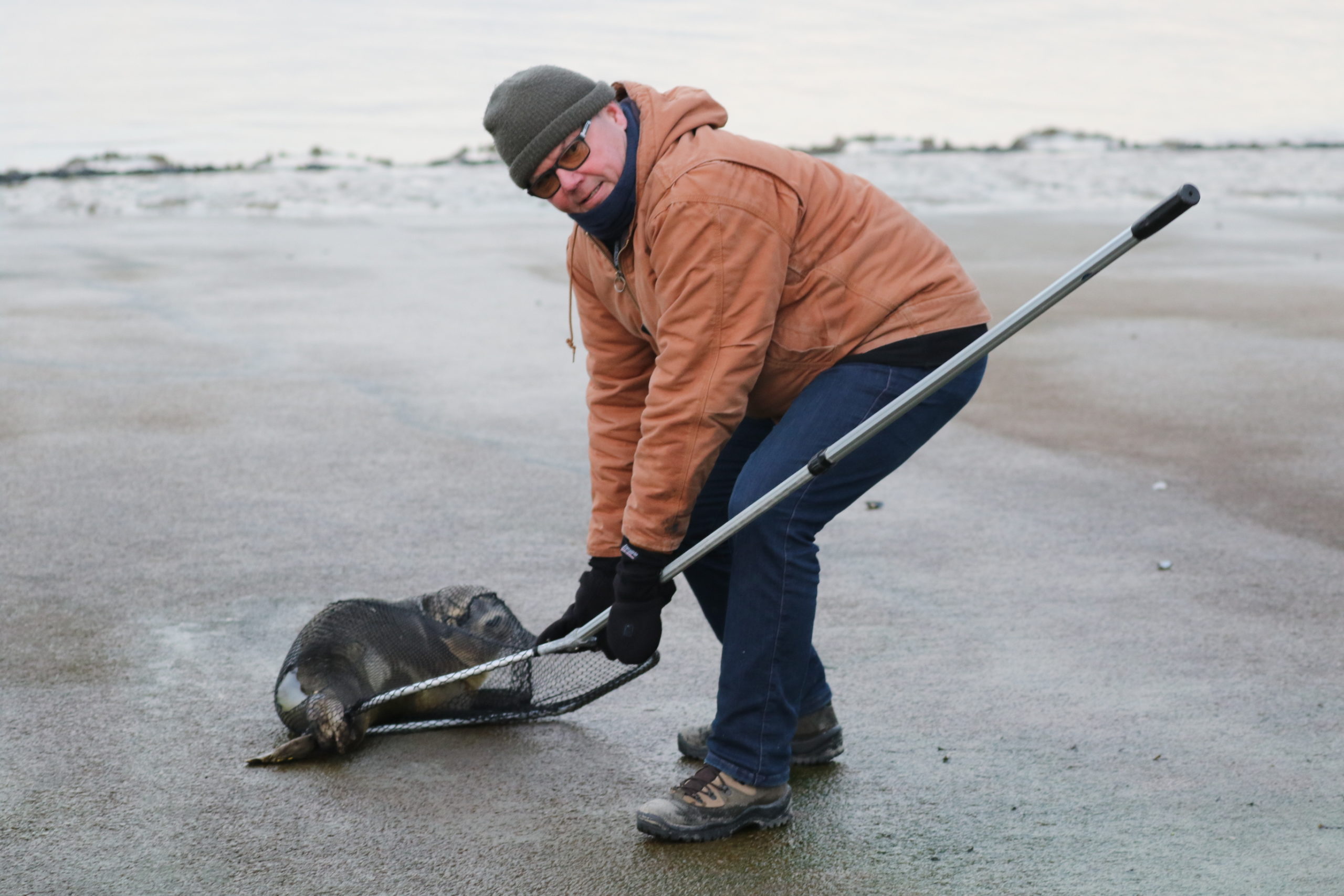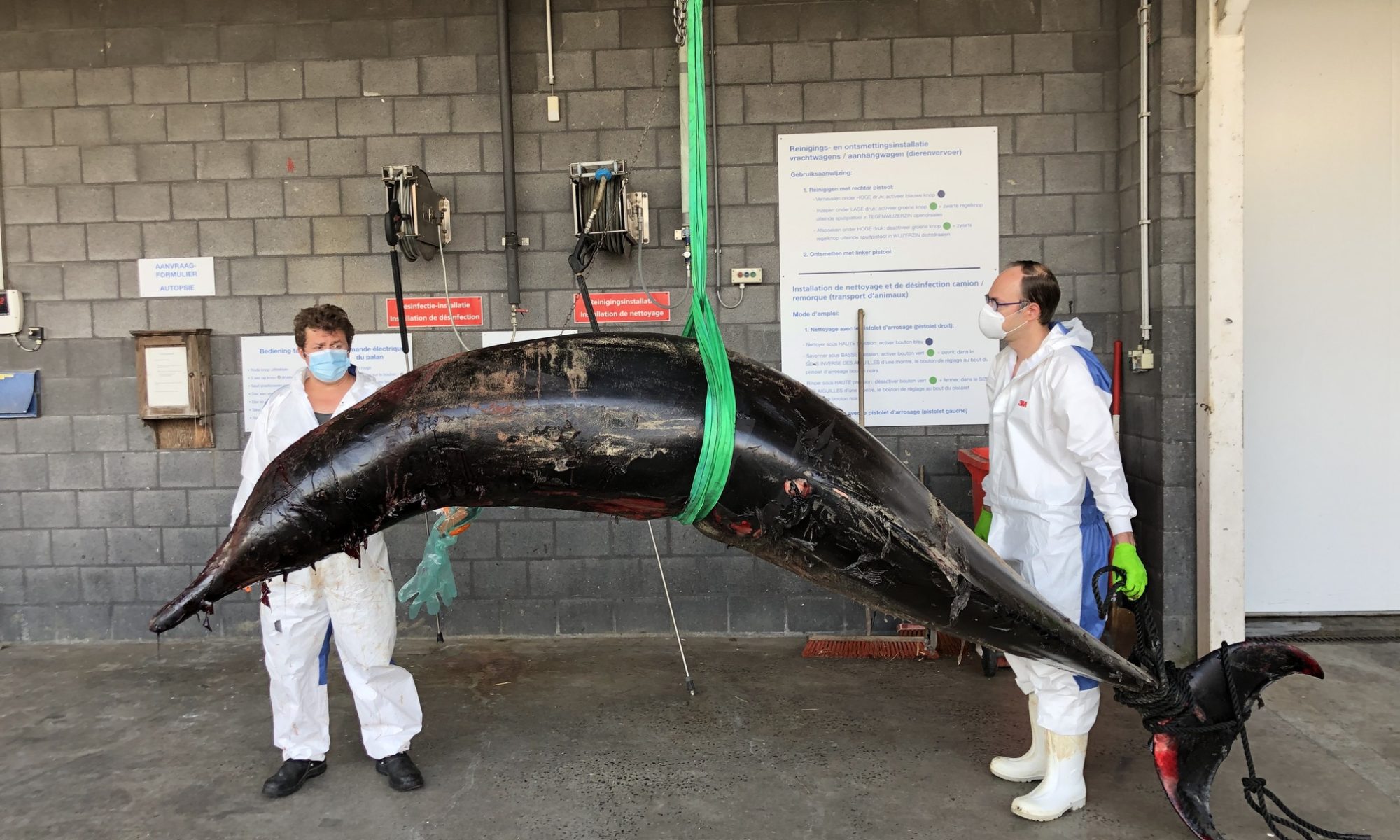In a new report, the RBINS summarises the results of the monitoring and research of marine mammals in Belgium in 2020. Relatively few harbour porpoises washed ashore, while seals continued to gain a foothold. A minke whale, two Sowerby’s beaked whales and a leatherback turtle can be considered unusual guests.
As usual, the Royal Belgian Institute of Natural Sciences (RBINS) has published an annual report on strandings and observations of marine mammals and other protected marine species in Belgium. It summarises the results of research and monitoring in 2020.
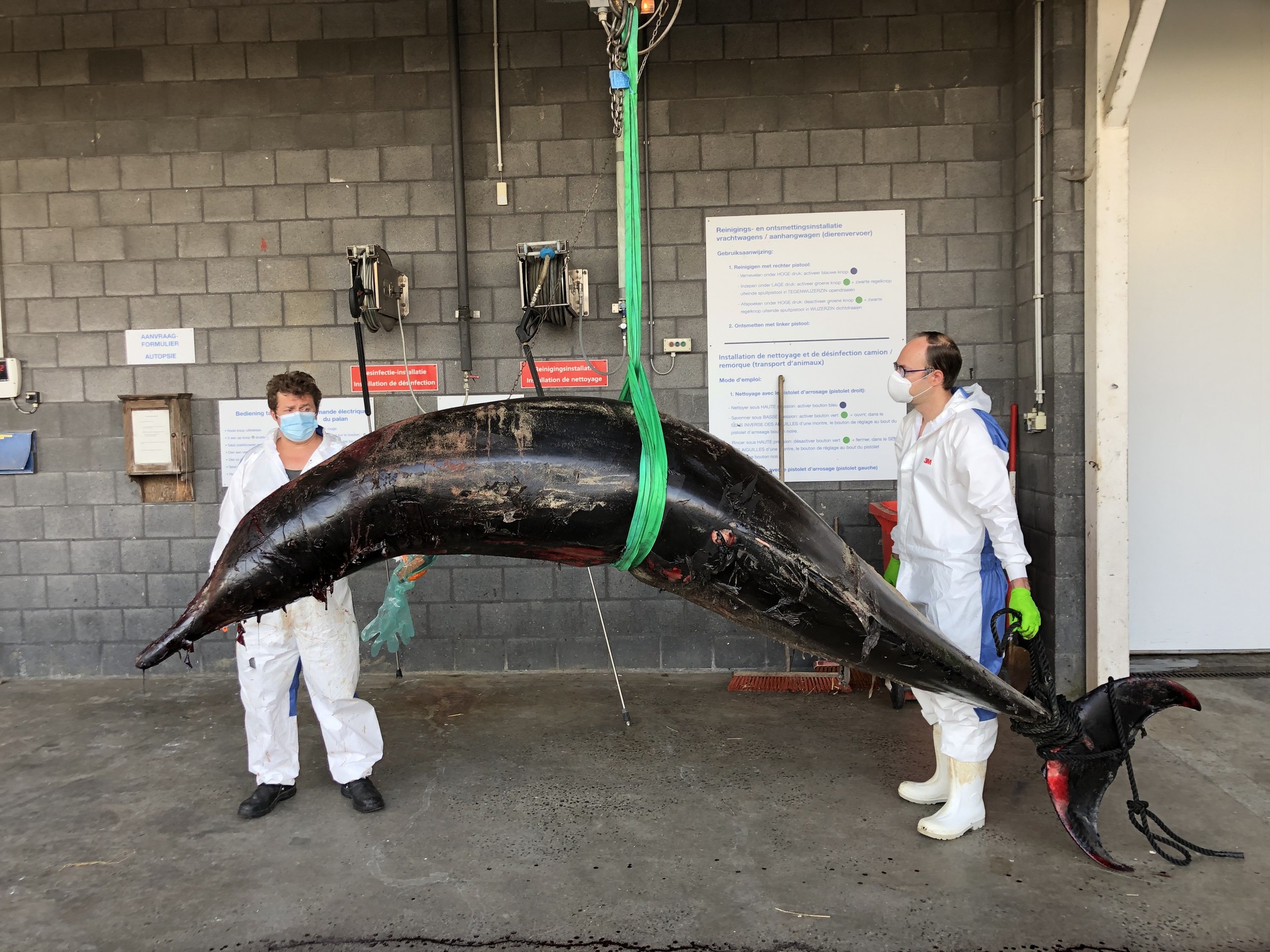
Regular guests
In 2020, 65 harbour porpoises washed ashore, a relatively low number compared to most recent years. Since 2002, only four years had less, and in some years there have been more than 100 washed up specimens. Some live porpoises died shortly after being stranded. The main cause of death of the animals that were studied was predation by the grey seal, a phenomenon that was first described only in 2012.
43 seals washed ashore dead or dying. This was comparable to the previous two years, but significantly more than in the years before that. Incidental catch was the main cause of death in the stranded seals. Sealife took care of 16 seals in distress.
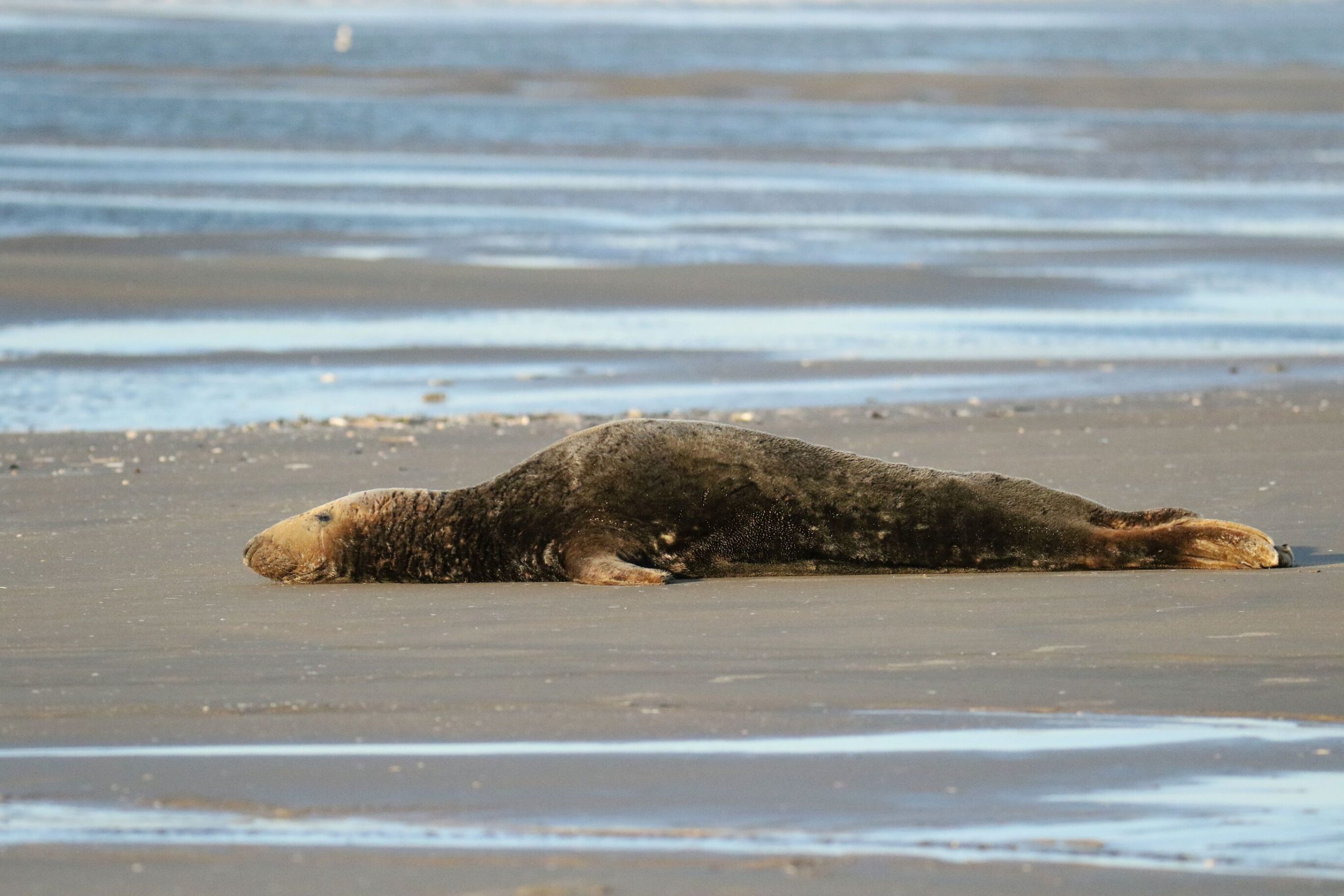
Apart from the well-known resting places in the Ijzer estuary and the marina of Nieuwpoort, 2020 saw the emergence of a new haul-out site for seals (both harbour and grey) in Ostend. At first, local politicians did not want to turn Ostend’s Klein Strand into a “zoo”, but soon the animals became a tourist attraction, under the watchful eye of volunteers from the North Seal Team.
Remarkable species
The most notable strandings concerned a minke whale and two Sowerby’s beaked whales. The very young minke whale was already very weakened before it broke its mandibles, died and washed ashore. This was only the eighth documented minke whale in Belgium in the last 20 years. The previous cases involved three carcasses and four observations of live specimens. Sowerby’s beaked whales do normally not inhabit the North Sea and are only seen here very rarely. The strandings in 2020 were only the sixth and seventh known cases in Belgium. It is possible that military exercises in the Atlantic Ocean caused the strandings of this species in Belgium and neighbouring countries.
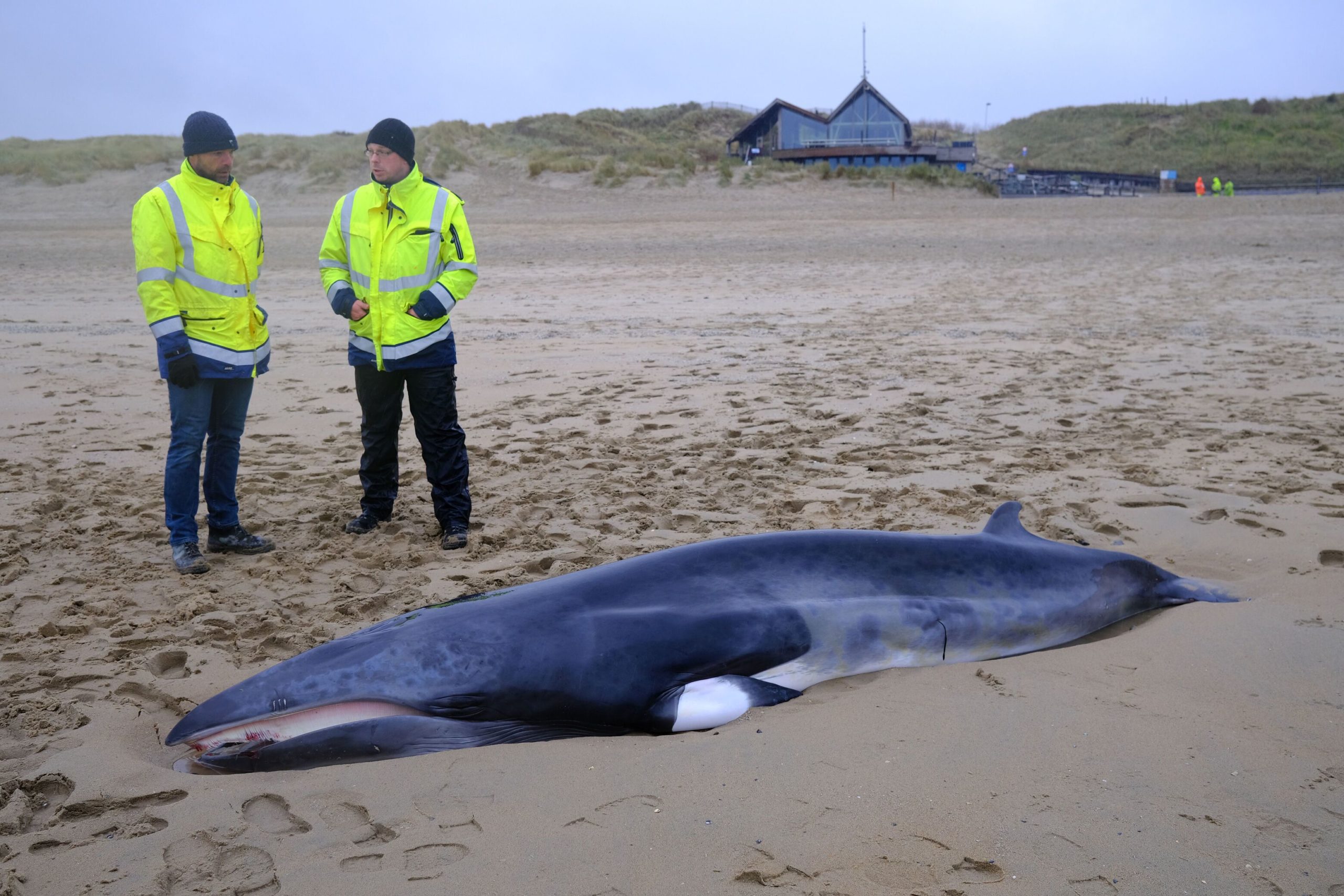
The most spectacular catch in 2020 was that of a leatherback turtle: the crew of a coastal fishing vessel was able to return the animal to the sea unharmed.
The 2020 marine mammal report (available in Dutch and French) is the result of the cooperation of the RBINS with SEALIFE Blankenberge, universities and a multitude of scientific institutions, government services, non-governmental organisations and volunteers.
